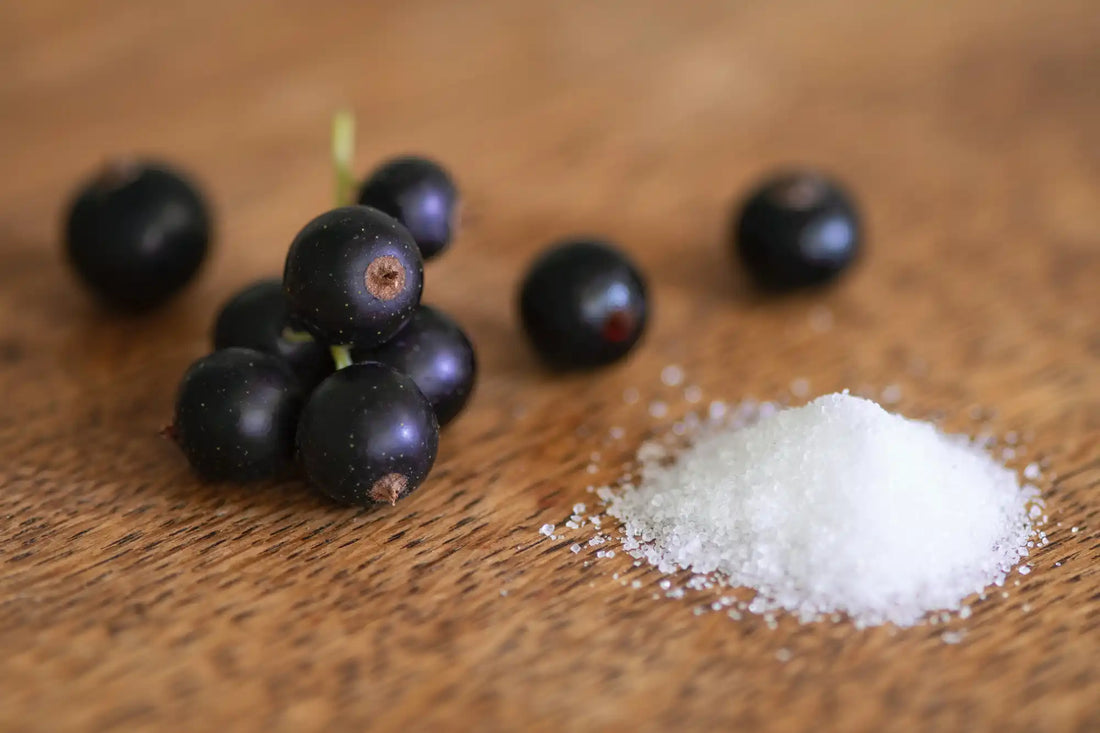
Sodium (Salt) Deficiency: Causes, Symptoms and Treatment
Feeling a bit off-balance? Experiencing headaches or muscle spasms? These symptoms could be more than a minor inconvenience - they might be signs of sodium deficiency, which can significantly impact your overall health.
Essential Takeaways
- Sodium is essential for hydration, nerve and muscle function, and blood pressure regulation.
- A deficiency in sodium can lead to a wide range of symptoms, from fatigue to confusion.
- Buoy’s Hydration Drops offer an easy, effective way to replenish sodium and trace minerals for daily wellness and performance.
In this guide, we'll explore what sodium does, why you need it, and how to maintain a healthy balance through smart nutrition and targeted hydration support like Buoy’s drops.
- Understanding Sodium (Salt) Deficiency
- Recommended Daily Intake of Sodium
- Common Causes of Sodium Deficiency
- Recognizing the Symptoms of Sodium Deficiency
- The Importance of Sodium for Health and Function
- Benefits of Replenishing Sodium for Overall Health
- How Buoy’s Drops Address Sodium Deficiency
- Sodium-Rich Foods and Dietary Tips
- Final Word: Simple, Balanced, Hydrated
Understanding Sodium (Salt) Deficiency
Sodium, commonly found in table salt, is a vital mineral that helps maintain fluid balance, support nerve activity, enable muscle function, regulate blood pressure, and even contribute to bone health. When your body lacks enough sodium - a condition known as hyponatremia - these essential functions can be disrupted.
Recommended Daily Intake of Sodium
The general recommendation for adults is to consume no more than 2,300 mg of sodium per day - roughly one teaspoon of salt. However, certain populations, especially those with high blood pressure or cardiovascular concerns, may require lower intakes. It's best to consult a healthcare provider to determine your specific needs.
Common Causes of Sodium Deficiency

Sodium deficiency can result from a variety of factors:
Profuse Sweating
Heavy sweating from high temperatures, exercise, or illness can result in significant sodium loss, especially in athletes or people in hot climates.
Medical Conditions
Conditions like kidney disease, liver cirrhosis, heart failure, Addison’s disease, and SIADH (Syndrome of Inappropriate Antidiuretic Hormone Secretion) can disrupt sodium regulation.
Medications
Certain diuretics, antidepressants, and pain medications may reduce sodium levels. If you’re experiencing symptoms, consult your doctor about potential medication effects.
Inadequate Intake
Though rare, sodium deficiency can also occur from very restrictive diets or inadequate sodium replacement after fluid loss.
Recognizing the Symptoms of Sodium Deficiency
Symptoms of sodium deficiency range from mild to severe. Common signs include:
-
Fatigue or weakness: Due to compromised hydration and fluid balance
-
Muscle cramps or spasms: Caused by poor nerve-muscle communication
-
Nausea or headaches: A result of electrolyte and fluid imbalances
-
Confusion or mental fog: Low sodium can affect brain function and clarity
-
Low blood pressure or dizziness: Especially noticeable when standing quickly
If you experience these symptoms frequently, consult with a healthcare provider.
The Importance of Sodium for Health and Function
Sodium plays multiple roles in keeping your body running smoothly:
-
Fluid Balance: Maintains the right amount of water inside and outside cells
-
Nerve Function: Helps generate and transmit nerve impulses throughout the body
-
Muscle Contraction: Assists in coordinating movement and muscle relaxation
-
Blood Pressure: Regulates blood volume and pressure via water retention
-
Bone Health: Supports calcium utilization and contributes to bone strength
Benefits of Replenishing Sodium for Overall Health
Keeping sodium levels in balance can improve:
-
Hydration and fluid retention
-
Electrolyte stability for performance and recovery
-
Muscle function and reduced cramping
-
Cognitive clarity and mental energy
-
Heart health and stable blood pressure
Your ideal sodium intake may vary based on factors like age, climate, physical activity, and overall health.
How Buoy’s Drops Address Sodium Deficiency

Buoy’s electrolyte and mineral drops are a simple, science-backed way to address low sodium levels. Sourced from natural sea salt and enhanced with 87 ionic trace minerals, Buoy offers a clean solution with zero sugar or sweeteners.
-
Each serving delivers 50mg of sodium
-
Easily squeezes into any beverage - water, juice, smoothies, even coffee
-
Clinically shown to hydrate 64% better than water alone
-
Vegan, non-GMO, gluten-free, and third-party tested
Sodium-Rich Foods and Dietary Tips
In addition to supplements, you can increase your sodium intake with nutrient-dense foods like:
-
Celery, spinach, beet greens, and Swiss chard
-
Olives, pickles, seaweed, and shellfish
-
Milk and cheese
However, many modern agricultural and water treatment practices strip natural sodium and minerals from food and water. That’s why combining diet with high-bioavailability supplements like Buoy is often the most effective approach.
Final Word: Simple, Balanced, Hydrated
Managing sodium doesn’t have to be complicated. With smart food choices and daily support from Buoy’s unflavored electrolyte drops, you can avoid deficiency, stay hydrated, and support your overall health - without added sugar or artificial junk.




